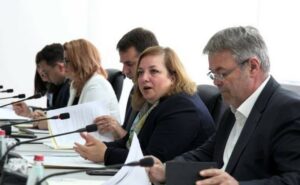
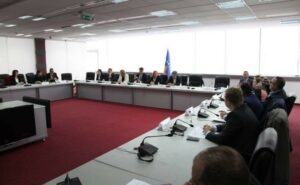
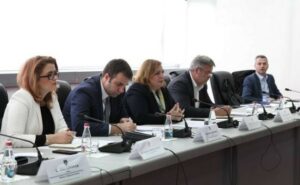
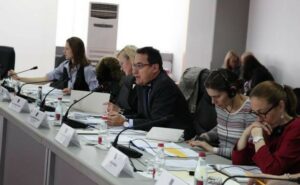
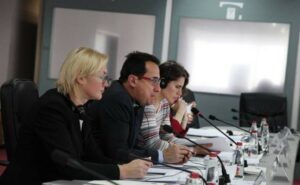
As regards trade the parties discussed trade integration and trade balance with Kosovo’s main trade partners. Kosovo presented the state of play in negotiations within CEFTA, in particular problems encountered during the negotiations and the agreement implementation. In this context, the Commission welcomed the commitment of December 2016 by the Ministers of the CEFTA parties to deepen regional economic integration as well as that by the Prime Ministers of the Western Balkans in Sarajevo on 16 March 2017 to start working on a proposal for a joint approach to furthering economic cooperation in Western Balkans. The sides agreed to regularly exchange information on the WTO observer status application. The Commission stressed the importance for Kosovo to adopt the laws on Safeguards Measures on Imports and on Trade in Petroleum Products and Renewable Fuels.
On customs and taxation the European Commission stressed the importance to complete the organizational structure of the Tax and Customs agency taking into account the cost-efficiency of tax collection processes and to ensure merit based appointment of personnel, and management. Kosovo agreed to regularly publish the implementation report of the National Strategy on Prevention of Informal Economy, Money Laundering, Terrorism Financing and Financial Crimes.
On industry and SME policy the European Commission recalled the need to carry out the restructuring of KIESA and further develop its capacities to improve its performance for promotion and support to investment, private sector and SME development. Kosovo committed to prepare an overview of business support services in Kosovo and a needs assessment for their development, to prepare an assessment of the implementation of the Kosovo Credit Guarantee Fund and to develop a concept document for the law on tourism.
Finally, on free movement of goods Kosovo committed to increase the capacity of institutions and adopt the laws and administrative instructions, improving quality infrastructure in the areas of standardization, accreditation, conformity assessment, metrology and market surveillance. The European Commission encouraged Kosovo to provide adequate support to the National Council of Market Surveillance Supervision in order to ensure the consistent application of the relevant regulations across Kosovo.
Background information
• The Stabilisation and Association Agreement is the framework for the EU and the Kosovo administration to regularly discuss technical and policy issues in relation to the European agenda.
• The Stabilisation and Association Committee and Sub-Committee meetings are co-chaired by the European Commission and Kosovo. Each meeting results in jointly agreed follow-up actions to be taken by the Kosovo authorities. The conclusions from the meetings will be available soon on the website of the EU Office/EUSR in Kosovo https://eeas.europa.eu/delegations/kosovo_en. There are seven areas covered through sectorial meetings of sub-Committees, on Justice, Freedom and Security; Innovation, Information Society, Social Policy, Education and Culture; Trade, Industry, Customs and Taxation; Internal Market, Competition, Consumer and Health Protection; Agriculture, Fisheries, Forestry, Food Safety; Transport, Environment, Energy, Regional Development; Economic and Financial Issues, Statistics. Two Special Groups cover the reform of the public administration and normalisation of relations with Serbia.
• Each Sub-Committee meeting monitors and accompanies Kosovo’s delivery on reforms and identifies how the EU can assist in this process. The meetings also provide direct input into the European Commission’s annual reports.
Last modified: August 10, 2022
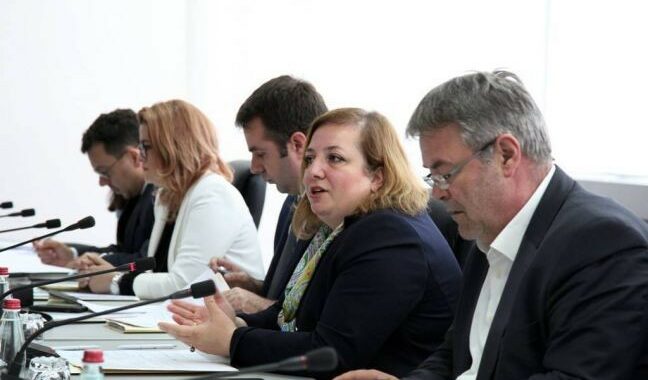
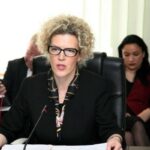









… [Trackback]
[…] Read More Info here to that Topic: integrimievropian.rks-gov.net/en/government-of-kosovo-and-european-union-discuss-trade-industry-customs-and-taxation-within-saa-framework/ […]
meditation music
… [Trackback]
[…] Info on that Topic: integrimievropian.rks-gov.net/en/government-of-kosovo-and-european-union-discuss-trade-industry-customs-and-taxation-within-saa-framework/ […]
… [Trackback]
[…] Find More Info here to that Topic: integrimievropian.rks-gov.net/en/government-of-kosovo-and-european-union-discuss-trade-industry-customs-and-taxation-within-saa-framework/ […]
… [Trackback]
[…] Find More Information here to that Topic: integrimievropian.rks-gov.net/en/government-of-kosovo-and-european-union-discuss-trade-industry-customs-and-taxation-within-saa-framework/ […]
I’m extremely inspired with your writing talents and also with the structure in your blog. Is this a paid theme or did you modify it yourself? Anyway stay up the excellent quality writing, it?s rare to peer a great weblog like this one nowadays..
One thing I’d really like to comment on is that weight loss program fast may be possible by the suitable diet and exercise. Ones size not simply affects the look, but also the overall quality of life. Self-esteem, depression, health risks, along with physical skills are affected in excess weight. It is possible to just make everything right whilst still having a gain. Should this happen, a medical problem may be the offender. While too much food and never enough workout are usually the culprit, common medical conditions and popular prescriptions can easily greatly amplify size. Kudos for your post here.
Something more important is that when looking for a good on the web electronics retail outlet, look for online shops that are continually updated, always keeping up-to-date with the most recent products, the most effective deals, plus helpful information on services and products. This will make sure that you are dealing with a shop which stays atop the competition and offers you what you ought to make educated, well-informed electronics acquisitions. Thanks for the essential tips I’ve learned through your blog.
From my examination, shopping for gadgets online may be easily expensive, but there are some how-to’s that you can use to help you get the best offers. There are generally ways to obtain discount bargains that could make one to ge thet best consumer electronics products at the lowest prices. Thanks for your blog post.
I truly appreciate this post. I?ve been looking everywhere for this! Thank goodness I found it on Bing. You’ve made my day! Thx again
Wow! This can be one particular of the most helpful blogs We’ve ever arrive across on this subject. Actually Excellent. I’m also a specialist in this topic so I can understand your hard work.
Pretty nice post. I just stumbled upon your blog and wished to say that I have really enjoyed surfing around your blog posts. After all I?ll be subscribing to your rss feed and I hope you write again very soon!
Things i have continually told folks is that when looking for a good online electronics shop, there are a few components that you have to take into account. First and foremost, you should really make sure to discover a reputable along with reliable shop that has gotten great critiques and scores from other individuals and business sector leaders. This will ensure you are handling a well-known store that provides good program and aid to their patrons. Many thanks sharing your ideas on this blog site.
I’ve been absent for some time, but now I remember why I used to love this blog. Thank you, I?ll try and check back more frequently. How frequently you update your site?
Hi would you mind stating which blog platform you’re using? I’m planning to start my own blog in the near future but I’m having a hard time making a decision between BlogEngine/Wordpress/B2evolution and Drupal. The reason I ask is because your design and style seems different then most blogs and I’m looking for something completely unique. P.S My apologies for being off-topic but I had to ask!
excellent publish, very informative. I’m wondering why the other specialists of this sector do not notice this. You must continue your writing. I’m confident, you’ve a great readers’ base already!
Top Stage Hypnotist for hire Kristian von Sponneck performs private stage hypnosis shows anywhere in the UK, Europe or worldwide. Hire hime for your next event!
I believe that avoiding ready-made foods is a first step for you to lose weight. They will often taste great, but prepared foods have got very little vitamins and minerals, making you take in more to have enough power to get through the day. Should you be constantly taking in these foods, transferring to whole grain products and other complex carbohydrates will aid you to have more vigor while ingesting less. Interesting blog post.
Hmm is anyone else having problems with the images on this blog loading? I’m trying to find out if its a problem on my end or if it’s the blog. Any responses would be greatly appreciated.
I have learned some considerations through your site post. One other stuff I would like to say is that there are many games out there designed specially for toddler age kids. They involve pattern acknowledgement, colors, family pets, and forms. These commonly focus on familiarization rather than memorization. This keeps a child occupied without having a sensation like they are learning. Thanks
… [Trackback]
[…] Find More to that Topic: integrimievropian.rks-gov.net/en/government-of-kosovo-and-european-union-discuss-trade-industry-customs-and-taxation-within-saa-framework/ […]
Usually I don’t read post on blogs, but I wish to say that this write-up very forced me to try and do it! Your writing style has been amazed me. Thanks, quite nice article.
I appreciate your wp design, where do you down load it from?
excellent points altogether, you just won a new reader. What may you recommend about your post that you simply made some days ago? Any sure?
Thanks for your fascinating article. One other problem is that mesothelioma is generally a result of the inhalation of fibers from mesothelioma, which is a cancer causing material. Its commonly found among personnel in the structure industry who may have long exposure to asbestos. It is caused by moving into asbestos protected buildings for a long time of time, Inherited genes plays a crucial role, and some individuals are more vulnerable for the risk as compared to others.
Wow! This can be one particular of the most helpful blogs We have ever arrive across on this subject. Basically Great. I’m also a specialist in this topic so I can understand your effort.
Great post here. One thing I would like to say is the fact most professional career fields consider the Bachelor Degree like thejust like the entry level requirement for an online college degree. Although Associate Qualifications are a great way to get started on, completing your current Bachelors reveals many doors to various careers, there are numerous internet Bachelor Diploma Programs available through institutions like The University of Phoenix, Intercontinental University Online and Kaplan. Another concern is that many brick and mortar institutions offer Online versions of their qualifications but usually for a considerably higher payment than the corporations that specialize in online college degree plans.
I love your blog.. very nice colors & theme. Did you design this website yourself or did you hire someone to do it for you? Plz reply as I’m looking to create my own blog and would like to find out where u got this from. kudos
Thanks for the ideas you share through your blog. In addition, several young women that become pregnant never even attempt to get medical health insurance because they worry they might not qualify. Although a lot of states at this moment require that insurers offer coverage no matter what about the pre-existing conditions. Prices on these kinds of guaranteed plans are usually greater, but when thinking about the high cost of health care it may be any safer route to take to protect a person’s financial future.
The next time I learn a blog, I hope that it doesnt disappoint me as much as this one. I mean, I know it was my option to read, but I truly thought youd have one thing interesting to say. All I hear is a bunch of whining about something that you might repair in case you werent too busy searching for attention.
Thanks for your exciting article. One other problem is that mesothelioma is generally caused by the inhalation of material from asbestos fiber, which is a cancer causing material. It can be commonly noticed among personnel in the engineering industry who have long experience of asbestos. It’s also caused by living in asbestos insulated buildings for some time of time, Genetic makeup plays an important role, and some persons are more vulnerable on the risk when compared with others.
Hi, Neat post. There is a problem together with your web site in internet explorer, might check this? IE nonetheless is the marketplace chief and a good component of people will leave out your excellent writing due to this problem.
Nice post. I used to be checking continuously this weblog and I’m impressed! Extremely useful info specially the last section 🙂 I take care of such information much. I used to be looking for this particular info for a long time. Thanks and best of luck.
I have viewed that good real estate agents everywhere are Marketing and advertising. They are realizing that it’s in addition to placing a sign in the front property. It’s really concerning building associations with these traders who sooner or later will become purchasers. So, if you give your time and energy to aiding these retailers go it alone – the “Law of Reciprocity” kicks in. Good blog post.
I would like to thank you for the efforts you have put in writing this website. I am hoping the same high-grade website post from you in the upcoming as well. Actually your creative writing skills has encouraged me to get my own website now. Actually the blogging is spreading its wings quickly. Your write up is a good example of it.
Hi! I know this is kinda off topic but I was wondering if you knew where I could find a captcha plugin for my comment form? I’m using the same blog platform as yours and I’m having difficulty finding one? Thanks a lot!
This actually answered my drawback, thank you!
We’re a group of volunteers and opening a new scheme in our community. Your web site provided us with valuable info to work on. You’ve done an impressive job and our entire community will be thankful to you.
okmark your blog and check again here regularly. I am quite certain I?ll learn many new stuff right here! Best of luck for the next!
Pornstar
Sex
Porn site
Sex
Viagra
Sex
Porn site
Buy Drugs
Scam
Scam
Buy Drugs
Buy Drugs
Scam
Buy Drugs
Viagra
Viagra
Sex
Porn site
Porn
Porn site
Porn
Sex
Scam
Pornstar
F*ckin? remarkable things here. I am very glad to see your post. Thanks a lot and i’m looking forward to contact you. Will you kindly drop me a mail?
Pornstar
Porn
Buy Drugs
Scam
Pornstar
Viagra
Scam
Pornstar
Porn site
Viagra
Buy Drugs
видеть во сне красить ресницы какой знак зодиака рождается в январе
11 как рассчитать свой асцендент онлайн,
асцендент в скорпионе
стадии порчи молока к чему снится
выпали здоровые зубы без крови
Viagra
I discovered your weblog website on google and examine just a few of your early posts. Continue to maintain up the excellent operate. I simply further up your RSS feed to my MSN Information Reader. Seeking forward to studying extra from you afterward!?
Scam
Buy Drugs
Sex
Viagra
Pornstar
Buy Drugs
Viagra
Viagra